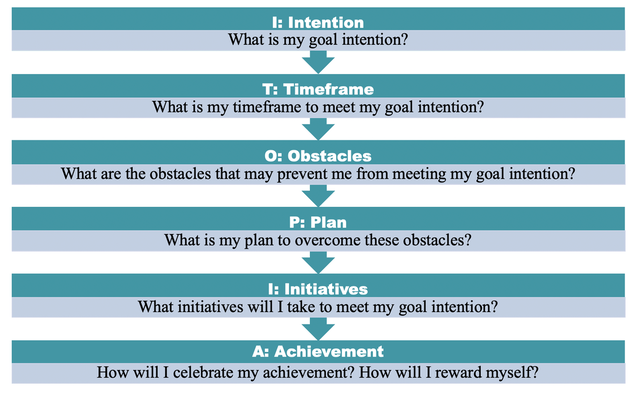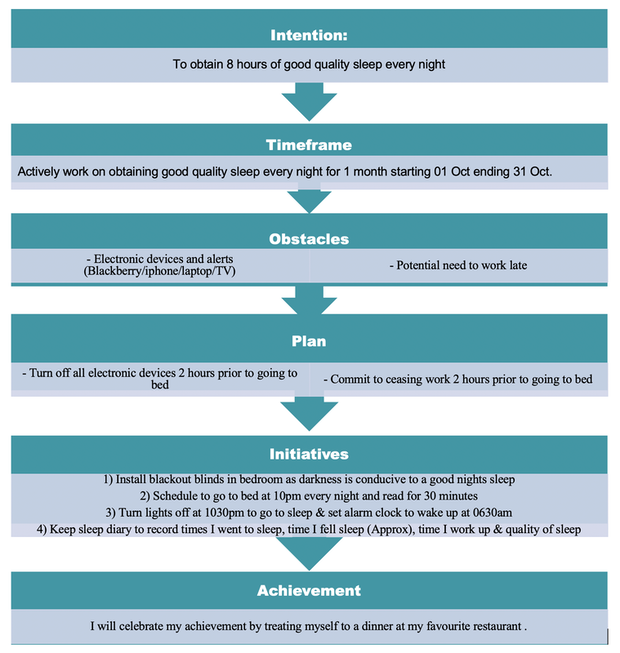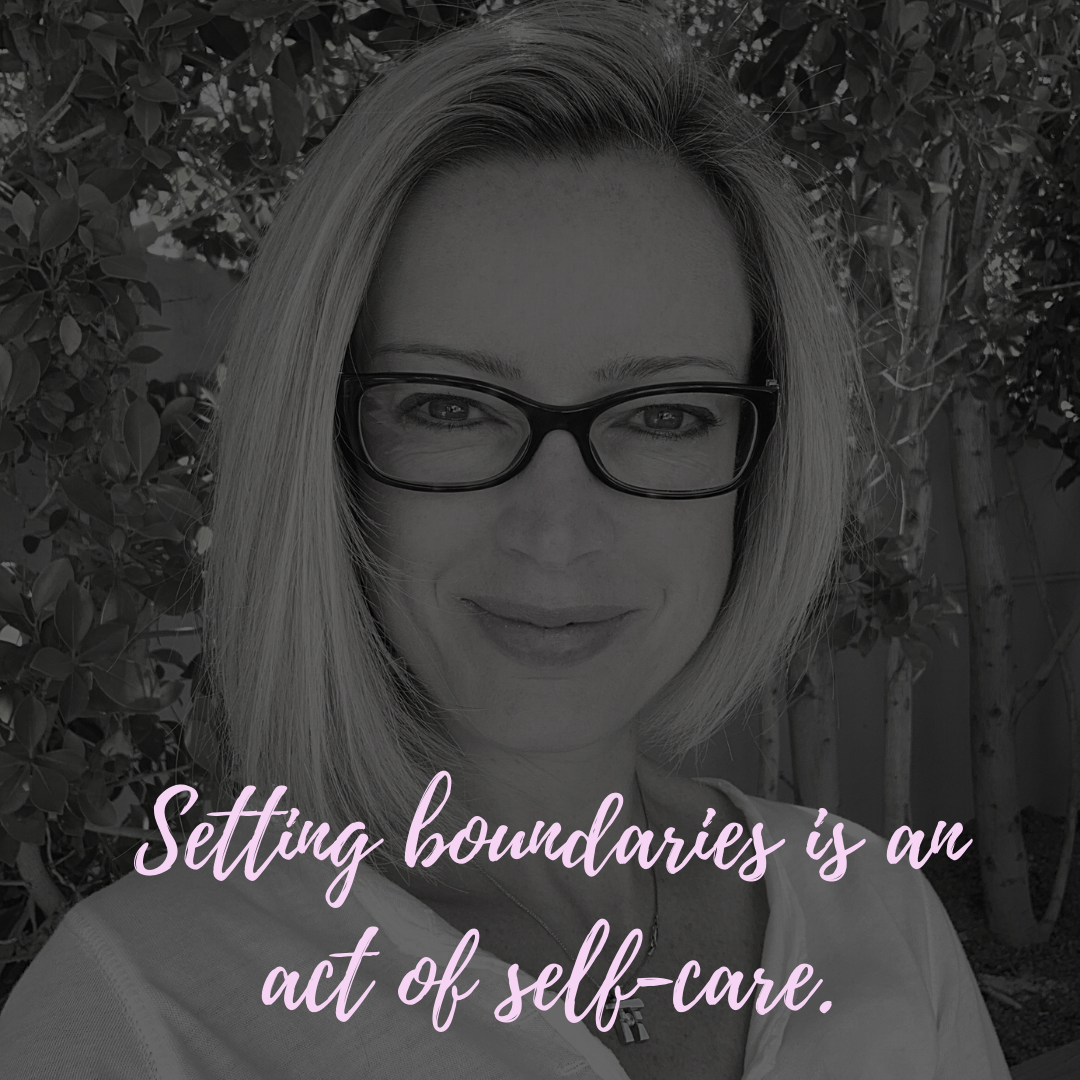Sometimes the ladder you are climbing isn't leaning against the right house. Regrettably, there are some companies which systemically churn and burn employees. No amount of pivoting and adapting to the situation or cultivating self-awareness, emotional intelligence or taking care of our mindset and wellbeing will improve things in the workplace. For the sake of our health, sometimes we just need to realise and accept that the ladder we are on is not leaning against the right house, and we need to move on. However, taking the step to move on is often easier said than done for two main reasons: Institutionalisation and Fear.
The longer we stay in a company, the more we become institutionalised. We adopt the belief that there are no other options out there for us, and we justify to ourselves that things aren’t that bad where we are. We fear change, the unknown, exposure, failure, judgement, and losing control. And, all of these fears become compounded when we become bogged down with life and fail to nourish our physical and mental health. In effect, when we don’t feel great and at our best, it becomes easy to limit the vision we have for ourselves based on our current circumstances. But here’s the thing – if we allow our fears to take hold of us, then we can end up living in regret, stagnation, complacency and a deep feeling of helplessness and unhappiness. And so, to avoid this, we need to learn to release the False Expectations Appearing Real. * * * Fear is a natural part of our natural human makeup that starts in childhood (Don’t touch that… Don’t talk to strangers) and evolves into adulthood where we become inundated with messages of fear, from society, the media as well as people around us. These messages of concern, as well as our past experiences, formulate our makeup and understanding of our world, which then creates mental roadblocks in our mind and can prevent us from making meaningful changes in our lives. The main reason why I did not change jobs and careers sooner than I did is that I had an intense fear of failure. I feared the consequences of throwing away my job and abandoning my career. The inner critic in my mind, which can be a real doomsayer, would squawk fears at me, and, for a long time, I listened to and gave authority to this pessimistic critic. I was secure doing a job that I was familiar with, and my inner critic fed me stories that reinforced my need for security. You might not make it on your own; you might and probably will fail. People will judge you for failing. Your failure will be criticised. What if things do not work out? What if you don’t make any money? What if you make a mistake? I was eventually able to tame my inner critic when I began to read about people who inspire me; the athletes, the businessmen and women, the disabled and abled, the persecuted, the challenged and the gifted. I devoured books on and by inspirational people, and, the more I read, the more apparent it became to me that all of these remarkable people in pursuit of their dreams had failed at some point, and in the vast majority of cases, several times. Yet, despite these failures, they persisted, got back up and demonstrated immense resilience and determination. Reading about these inspirational people empowered me to tune out my ego and fears, and gradually I began to hear the faint cries of my inner wisdom whisper You will make it. You will succeed. You will not fail. If you fail, you will be okay. What is the worst that can happen? And when I asked myself, what was the worst that could happen? I realised that the worst had already happened – I had suffered from burnout, anxiety and depression. And, I had come out on the other side, and, with this realisation, I knew that I could endure more challenges and obstacles should they arise in the pursuit of my dreams. The Lesson: To move past fear, we need to:
The steps we can take to mitigate fear are: Using our imagination:
0 Comments
Have absolutely no sense of guilt about being happy and successful What is the biggest barrier that stops you from pursuing your dreams?
In the past, for me, it was the belief that I was not deserving of success. However, it took me a while to figure out that this is what was actually holding me back. Roughly fourteen years ago, I was in Italy on a business trip with one of my former corporate clients with whom I had a great relationship. We got along exceptionally well not only on a professional basis but also on a personal level, and I recall that one evening as we were driving from her office in Belluno to Venice for the following days meeting, we began discussing life in general. As we opened up about our various life experiences, I remember saying to her that I felt that something bad was going to happen to me. Concerned, she asked me what I meant. I responded by saying that I was due to get married to my long term boyfriend, we were buying a beautiful apartment in West London and that we had just gotten two kittens, and that although I should feel happy, I felt worried. I explained that after years of paying off student loans and climbing the corporate ladder that life was finally coming together and because of this I had a feeling that the rug was going to be pulled out from under me and I would lose it all. Not long after the conversation with my client, I returned home from another business trip and asked my then-boyfriend, and now husband Ben, if he had ever felt like something bad was going to happen to him. He looked at me confused, replied no and asked me to elaborate. I told him that life felt like it was going too well and that I couldn’t enjoy feeling content because I felt like “external factors” would come into play and take it all away from me. He looked at me perplexed and disbelievingly and responded that neither of us was born with a silver spoon in our mouths, we had worked hard and therefore we deserved everything that we had worked for. DESERVED being the operative word. At that moment, I realised that I did not think that I deserved success. All the while that I was struggling to pay off student loans and saving money for the deposit on our apartment, I felt normal and okay - because I associated the feeling of struggle with being normal. Being successful was a new feeling for me, and so I struggled to believe that I deserved success. Hence my fear that I was going to lose it all. Recognising that I am worthy and deserving of success was a significant barrier for me to overcome. Primarily because I used to compare and contrast society problems to my own life and as a result, I would feel guilty for my own success. Guilt from my Catholic school days circulated continuously in my mind… there are starving children in Africa… there are homeless people…there are so many disadvantaged people. How come I get to be so lucky? Ultimately after a great deal of work on myself, I came to realise that I was not enlightening myself or anyone else by feeling guilty or refusing to enjoy my successes. If anything, I realised that I could use my experience and success to help others. I am telling you this story because the deep unconscious beliefs which we have about ourselves and our self-worth are the missing pieces that hold us back from pursuing our dreams. And as such, we need to take the time to understand what these unconscious beliefs are so that we can create a path forward. So, now I return to my original question, What is the biggest barrier that stops you from pursuing your dreams? I have given numerous keynote speeches over the years, and invariably one of the most common questions I am asked afterwards is: What would you tell your younger self? This is such a great question and given the forum that I am usually in; I typically don’t have much time to provide a comprehensive answer. My usual response is “Don’t worry so much”. If I had the time to address the question further, I would respond with the following life lessons: The grades you get in school do not determine your worth. Do not place your worth on a grading system that compares your intelligence against someone else’s. Everyone learns in different ways, and that is okay. (Ironically I was a D student in Mathematics throughout elementary and high school, yet I spent much of my previous career working with numbers and Profit & Loss analysis – turns out I wasn’t bad at mathematics after all). Don’t spend your time worrying about things and ‘predicting’ future problems. I used to be a professional worrier and I was very good at forecasting future issues – the vast majority of which never occurred. Live in the present moment. “I am an old man and have known a great many troubles, but most of them never happened. Worrying is like paying a debt you don’t owe. I have spent most of my life worrying about things that have never happened. Drag your thoughts away from your troubles... by the ears, by the heels, or any other way you can manage it. Don’t judge and formulate fixed opinions. Be open to other viewpoints. You don’t have to be right.
As is typical with the young, I tended to read and become passionate about various causes and world events and held firm on the need to be right. I have since learned that none of this matters. Everyone wants to be loved, valued, validated and respected. And giving love, value, validation and respect is far more important than being ‘right’. All the challenges and problems you face will help you to grow and become a stronger and better person. I wouldn’t have believed it at the time, but in hindsight, I now realise that all experiences, even the challenging ones, were for my evolution and growth. Love your body. I came across a photo recently of myself on the beach in a bikini taken roughly 20 years ago. Why was I so worried about my body? Gravity was kind back then – everything was where it was supposed to be! Enjoy your natural hair colour I now spend a small fortune highlighting my hair to get it to look like my natural hair colour and to cover the grey. Take good care of your health and wellbeing — practice daily self-care. I learned the hard way that we cannot serve from an empty cup. If you don’t love yourself and take care of yourself, you cannot love and take care of others. Do not equate your net worth with your self-worth. The amount of money you make does not determine how worthy you are. Society teaches that the more money you make, the ‘better’ and more ‘powerful’ you are. This is nonsense. No amount of money takes away the low lying feeling of doing something you do not want to do. Regardless of how much money you make, if you are not happy, it is not worth it. Money does not validate your worth. Finally, in all those moments of self-doubt and worry – go inwards. Get quiet, meditate, tune out the noise, and the answers will come. Do not seek external validation and answers. The answers are not there. They are within. These are a few of the life lessons that I would tell my younger self. How about you, what would you tell your younger self? Share with me; I would love to know. Success takes time, effort, perseverance & patience. A few months ago, while vacationing in Palm Springs, California, I decided to hike 4 miles up and down one of the local mountains. The first half of the hike was pretty tough – it was 1.5 miles straight up a vertical incline with short, sharp switchbacks. When I reached the top, I was pretty pleased with myself – my phone told me I had climbed 80 flights of stairs and that I had completed the incline in 45 minutes. The hike down around the side of the mountain was much more comfortable – the terrain still had short, sharp switchbacks, but the very nature of it being downhill made for a much easier hike.
Until, forty-five minutes later, when I reached the bottom of the mountain and discovered that the trailhead abruptly ended in front of an 8-foot barbwire fence, which stretched for miles. The barbwire fencing had a sign indicating that the land beyond the wall was private property and owned by the California government for flood control. Beyond the fencing, and just a few streets away was the condo where my husband and I were staying. I stared at the fencing and then back up at the mountain in dismay. Did I really have to hike back up the mountain and then have to climb down the other side just because of an 8-foot barbwire fence? And why was there a well-marked trail indicating to hike this way if you couldn’t get past the fence? Recognising that I did not have enough water with me to reclimb the mountain, I decided to scale the barbwire fence. Several failed attempts later, and after a great deal of muttering under my breath, I managed to lob myself over the fence relatively unscathed. I was euphoric and silently singing praises to myself for being so resourceful. That is until I realised that the newly tarmacked road that I was walking down was actually part of an empty private gated community that would, at some point, become a housing development. As I walked past all the vacant lots, I spied a 10-foot electric gate at the end of the road. I groaned. There was not a person in sight who operated the gate, and as I reached the gate, I discovered there was no chance of opening it or climbing over it. Until…I discovered a 5-foot cement wall with tall box hedging surrounding it on the other side. Determined not to give up, I catapulted myself up and over the cement wall and landed in the hedging on the other side. I had a few minor scratches and cuts on my hand, but overall, I was unscathed. As I walked back to our condo, I realised that my hiking adventure is an excellent metaphor for how we go about setting and achieving goals. We often set goals and tactics to realise our ambitions; however, we usually don’t anticipate the bumps and roadblocks (and 8-foot barbwire fences!) that come up along the way. When these roadblocks arise, implement the following strategies:
“Your dreams become goals when you write them down”In this goal setting post series, I have outlined two steps: Step 1: To change your life, you first have to identify what you need to change. In case you missed this post and would like to download the FREE “Life Review Deep Dive” exercise to help you get clarity, you can revisit the post and exercise here: https://www.itopiacoaching.com/mindset-coaching-blog/change Step 2: Once you have identified what you need to change, there is still one more step you need to take before setting goals. This step is: understanding your motivation for the goals. In case you missed this post and would like to revisit it and download the FREE goals setting exercise, you can access it here: https://www.itopiacoaching.com/mindset-coaching-blog/start-with-why Now let’s dive into how to set and achieving your goals. It is essential to set goals that are inspiring and motivating to you while also making you feel stretched. Meaning, the goals you set should feel challenging, yet achievable. If you set goals that do not feel challenging or do not inspire you, the chances are that you will not follow through with trying to reach them. If you think about it, why would you dedicate time and effort towards something that is not that inspiring? In my own pursuit to implement goals, I initially tried to apply the goal-setting strategies which I was taught throughout my career and education; however, I found that the various acronyms and strategies didn’t work for me. I felt the strategies were missing a key element – which is dealing with potential obstacles. Most goal-setting acronyms and processes state that:
While I agree these approaches are critical, in my opinion, they fail to cover how to overcome potential obstacles that undoubtedly will arise while pursuing a new goal, and speaking from my own experience, once an obstacle comes along, it’s easy to cease pursuing the goal. Through much trial and error, I realised that I was much more likely to reach my goal by anticipating potential obstacles and planning for them rather than pretending that there weren’t any hurdles that could prevent me from reaching my target. I therefore created my own goal acronym: I Intention T Timeframe O Obstacles P Plan I Initiatives A Achievement Below is a detailed explanation of the iTopia acronym: Review the blog example to see how in practical terms the iTopia acronym can be used to set a new goal: Use the iTopia acronym to build out your goal(s) by downloading and completing the attached exercises.
|
�
Claire RogersHi! Welcome to the Mindset Coaching Blog, where I will be sharing with you how to develop healthy habits and empowering beliefs. Blog Categories
All
Ready to further your personal development journey?
Sign up for the the iTopia Signature Coaching Program: Getting Out of the Rut by Getting Unstuck! An online self-directed mindset coaching program built on the idea that life satisfaction and happiness comes from pushing past limiting beliefs, the status quo and our comfort zone. |
||||||









